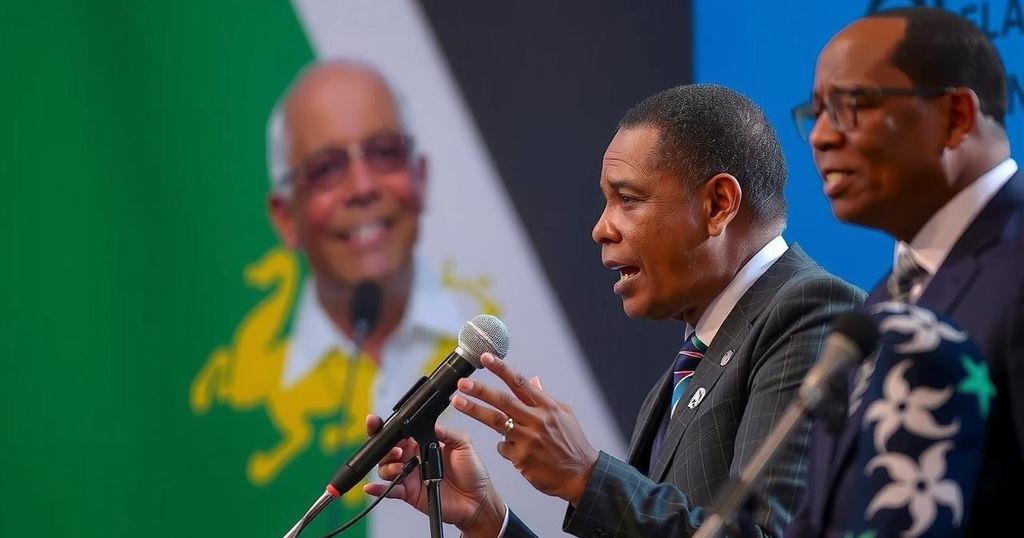Botswana’s Political Landscape Faces Transformation as BDP’s Rule is Challenged

Preliminary election results indicate a potential end to the Botswana Democratic Party’s (BDP) nearly 60-year rule, with the opposition Umbrella for Democratic Change (UDC) likely to secure a majority in the national legislature. Voter dissatisfaction over issues such as unemployment and economic management appears to have propelled the UDC and other opposition parties to success, as President Mokgweetsi Masisi’s party faces a historic defeat.
The early counts indicate a seismic shift in Botswana’s political landscape as President Mokgweetsi Masisi and his Botswana Democratic Party (BDP) face a significant defeat after nearly sixty years in power. Voter discontent surrounding mismanagement and rising unemployment appears to have propelled the left-leaning Umbrella for Democratic Change (UDC) party, led by human rights lawyer Duma Boko, toward victory in the recent general elections. Preliminary results reveal that the UDC, along with other opposition parties, has secured 31 of the 61 parliamentary seats, thereby ousting the BDP from its long-standing dominance. The electoral process, in which over one million citizens participated, highlighted mounting grievances regarding the Masisi administration’s performance during his term, notably a staggering unemployment rate currently at 27 percent and issues surrounding economic stagnation attributed to dwindling diamond sales, the country’s main revenue source. In Wednesday’s voting, the BDP’s representation dwindled alarmingly, securing only one seat so far, while the UDC claimed 19 seats, followed by the Botswana Congress Party with seven and the Botswana Patriotic Front with five. Botswana’s First Past the Post electoral system necessitates 31 seats to form a majority government; thus the results indicate a potential hung parliament. This election marks a critical moment in Botswana’s history as it approaches governance under different leadership. The Mmegi newspaper captured the sentiment of change with their front-page headline proclaiming: “Botswana’s new dawn as Boko, UDC rise.” Following the election, Mr. Boko expressed on social media: “CHANGE IS HERE.” The anticipated results, pending confirmation by the Independent Electoral Commission, underscore a significant paradigm shift in Botswana’s political dynamics, challenging the formerly unassailable position of the BDP. Analysts suggest the new government must prioritize economic stabilization, youth employment, and reducing dependence on diamond revenues to foster sustainable growth.
Botswana’s political landscape has been largely dominated by the Botswana Democratic Party (BDP) since the country gained independence from Britain in 1966. The recent elections have brought to light a growing dissatisfaction among voters, attributed to economic mismanagement, rising unemployment, and allegations of corruption within Masisi’s administration. The leftist UDC party, formed to consolidate opposition against the BDP, has captured the public’s attention as a viable alternative, supported by concerns over socio-economic inequality and increasing poverty. With the BDP’s support waning in recent years, particularly under Masisi’s leadership, the elections signify a pivotal moment that could redefine Botswana’s governance, marking the potential end of nearly sixty years of BDP rule.
The recent election results reflect a significant shift in Botswana’s political landscape, as the opposition UDC party has seized control amid growing dissatisfaction with the ruling BDP. This election signifies not only a potential end of an era for the BDP but also highlights critical socio-economic issues faced by the nation, such as unemployment and economic reliance on diamond sales. The incoming administration will need to focus on addressing these pressing challenges to pave the way toward a more equitable and sustainable future for Botswana.
Original Source: www.france24.com







